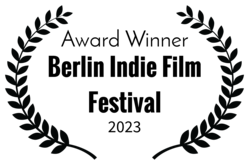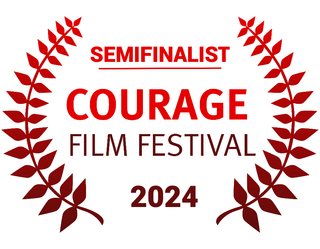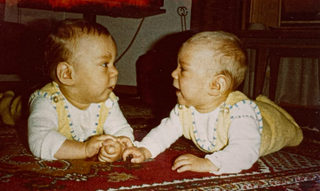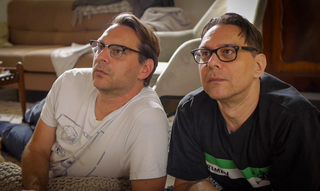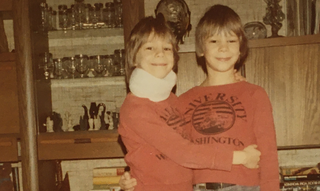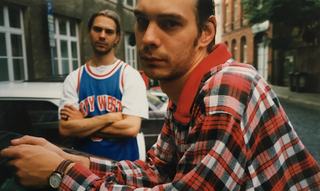Startseite
Ein Dokumentarfilm von Susanne Hensdiek
Die besondere Geschichte der eineiigen Zwillinge Matthias und Christian. Vom Gleich- und Anderssein, von Nähe und Rivalität, einer lebensrettenden Nierenspende vor 30 Jahren, Humor, Mut und Anarchie und so manchen Verrücktheiten.
The unique story of identical twins Matthias and Christian. Of sameness and difference, of closeness and rivalry, of a life-saving kidney transpant 30 years ago, humor, bravery and anarchy - and a lot of craziness.
Darum geht es:
Als Kind ist der eine gesund und kräftig, der andere oft krank und kraftlos. Als sie 17 sind, erkennt ein Arzt nach einem Knochenbruch im letzten Moment, dass Matthias lebensbedrohlich krank ist. Er hat nur eine Niere und diese hat zudem über die Jahre immer mehr versagt und ihn schleichend vergiftet. Es hat niemand bemerkt und es grenzt an ein Wunder, dass er noch lebt, heißt es im Krankenhaus. Hätte er eine Banane gegessen, sagt der behandelnde Arzt zu Matthias, wäre er wegen seiner kaputten Niere an dem enthaltenen Kalium gestorben. Intuitiv mochte Matthias keine Bananen.
Christian spendet ihm eine seiner zwei gesunden Nieren. Es beginnt eine anstrengende Zeit für beide. Fast volljährig, wollen beide rausgehen, Party machen, es krachen lassen wie andere in ihrem Alter. Statt sich an Quarantäneregeln, Ernährungspläne und einen Alltag mit angezogener Handbremse zu halten.
Schnell ist klar: Vernunft und Verbote sind trotz Nierentransplantation zweitrangig für die Zwillinge. Nicht lang nach der Operation stibitzt sich Matthias auf der Quarantänestation, auf der er liegt, einen Arztkittel samt Namensschild und Gesichtsmaske. Und schleicht sich unbemerkt zu seinem Bruder, der auf einer anderen Station des Krankenhauses liegt und sich vom Eingriff erholt. ‚Mehrere Tage von seinem Zwilling getrennt sein? Nicht mit uns!’, sagen sich beide.
In einem Alter, in dem junge Erwachsene feiern gehen, tanzen, trinken, rauchen und andere unvernünftige Dinge tun, sollen Christian und Matthias im Schongang leben. Die beiden machen genau das – nicht. Es wird ausgiebig gefeiert, getanzt, Alkohol getrunken und geraucht. Wenn Matthias in der Disko umkippt, gehen beide kurz an die frische Luft und weiter geht’s. Ihr Motto: jetzt erst recht!
Der Film erzählt die Geschichte ihrer Nierentransplantation. Was er aber noch viel mehr zeigt, ist, wie viel Lebensfreude die beiden Zwillingsbrüder haben. Wie viel Schalk und Anarchie, trotz widriger Umstände. Und welch bemerkenswert enge Verbindung.
Nicht lang nach der OP sind beide zusammen auf einem Jahrmarkt. Dort aufgebaut: eine sich drehende Scheibe, auf der sich Besucher:innen miteinander messen können. Die Zwillinge klettern mit ihren gerade vernähten OP-Narben hinein und ringen nach allen Regeln der Kunst miteinander. Egal, dass die frischen Narben aufplatzen und beide bluten. Auch das lösen sie als „Partners in Crime“ zusammen, um Ärger mit den Eltern oder Ärzten zu umgehen – mit einer Nadel und der Angelschnur von Papa.
Diese Zeit seit der Transplantation bringt die Zwillinge noch näher zueinander. Gleichzeitig haben beide das Bedürfnis, sich voneinander zu lösen. Christian beschließt, Schauspieler zu werden und in eine andere Stadt zu ziehen. Er bewirbt sich an Schauspielschulen und besteht in Ulm die Aufnahmeprüfung. Nach dem ersten erfolgreichen Ausbildungsjahr meldet Christian seinen Bruder an der gleichen Schule zur Aufnahmeprüfung an. Dem sagt Christian aber erst danach, dass er für ihn aus Spaß eine Bewerbung eingereicht hat. Matthias fährt tatsächlich zur Prüfung, bekommt einen der raren Ausbildungsplätze dort und sagt ab, um eine kaufmännische Ausbildung zu beginnen.
„Die Bergmanns“ ist ein Film über Gleich- und Anderssein, Nähe, Anarchie, Humor, Mut und eine besondere Nierenspende vor über 30 Jahren. Trotz erst einmal schwieriger Lebenslage sind seine Protagonisten dabei unerschütterlich positiv und lustig, erstaunlich leichtfüßig und angenehm unkonventionell.
That's what it's all about:
As children, one is healthy and strong, the other often sick and weak. At 17, during an examination caused by broken leg, a doctor discovers at the last-minute that Matthias has only one kidney which has been failing for years and is slowly poisoning him. In the hospital, they say that it's almost a miracle that he is still alive, medically a very unusual case. If he had eaten a banana, the doctor treating Matthias said, he would have died from the potassium it contained due to his damaged kidneys. Matthias had never intuitively liked bananas.
Christian donates one of his two healthy kidneys to him. It is the beginning of a difficult time for both of them. Almost legal age, they want to go out, party and get wild like the other kids, instead of following strict quarantine rules, nutrition plans and being forced to live life with one foot on the brake.
Quickly it becomes obvious that despite the kidney transplant, being reasonable and sticking to the rules take a back seat for them. Not long after the operation, Matthias swipes a doctor's coat with a name tag and a face mask from the quarantine station where he's staying. He sneaks unnoticed to his brother, who is recovering from the procedure on another floor of the hospital. "Being separated from my twin brother for several days? No way!" they say.
At the age when young adults go out to party, dance, drink, smoke, and other wild stuff, Christian and Matthias are expected to hold back. And that's just what they don't do. They party, dance, drink alcohol, and smoke. If in the disco, the partying makes Matthias feel sick, they both take a short break outside, and then head right back in. Their motto: now more than ever!
The film tells the story of their kidney transplant. More, it shows the brothers' love of life, the mischief and anarchy despite the adverse circumstances, and the remarkably close bond that they share.
Not long after the surgery, they visit a fair together. There is a boxing ring set up where visitors can compete with each other. The twins climb in with their freshly stitched surgical scars and wrestle with each other using every trick in the book. It doesn't matter that the fresh scars burst open, and both are bleeding. They fix this together as "partners in crime," using a needle and fishing line from their dad to avoid trouble with parents or doctors.
The time after the transplant brings the twins even closer. But both feel the need to break away from each other as well. Christian decides to become an actor and move to another city. He applies to drama schools and passes the entrance exam in the Ruhr region. After the first successful year, Christian enrolls his brother in the same school for the entrance exam. However, he only tells Matthias afterward that he submitted an application for him as a joke. Matthias actually takes the exam, and even secures one of the rare spots there, but then turns it down, preferring to start a commercial apprenticeship instead.
"Die Bergmanns" is a film about sameness and otherness, closeness, anarchy, humor, courage, and an extraordinary kidney donation over 30 years ago. Despite their initial difficulties in life, its protagonists remain irrepressibly positive and humorous, surprisingly light-hearted, and pleasantly unconventional.
